
Detoxing Without Deprivation
– Post by Love Club Member: Janine_JHWellness. Read more on The Love Club
Every January, after one too many on New Year’s Eve, millions of people resolve to get their health back on track. The new year has become synonymous with drastic diets and cutting out alcohol a la “dry January.” Yet, by February, less than 25% of people remain committed to their resolutions. So instead of a short-term, quick fix, this year, opt for less radical but sustainable changes to achieve better health.
“Detoxing” is one of those wellness buzzwords that can go either way. It can be hyped as a gimmicky multi-day juice fast (no thanks) or accomplished through small dietary and lifestyle changes that become your daily routine. Naysayers argue we don't need to detox because our bodies are continually processing and eliminating harmful chemicals known as toxins all the time. However, there are steps we can take to improve our body's ability to detox. Doing so can lead to improved energy and sleep, clearer skin, weight loss, and balanced hormone levels.
Instead of focusing on depriving yourself this January, here are the 6 things to incorporate into your routine to optimize detoxification.
Eat quality protein at every meal
Amino acids, the building blocks of protein, bind to toxins to be shuttled out of the body. The average adult should eat 0.8-1.1 g protein/kg body weight per day. Choose lean, grass-fed, organic, and non-GMO meat and wild-caught fish low in mercury. The FDA simplifies fish recommendations here: Seafood by Mercury Levels. The best vegan options are miso, natto, tofu, and tempeh, while hemp and pea protein powders are excellent supplemental protein if needed.
8-10 servings of vegetables daily
Vegetables are detoxifying powerhouses. They provide fiber, which helps ensure regular bowel movements. Proper elimination is key, as most toxins are excreted in our stool. Aim for 35g fiber/day. Leafy greens, cruciferous vegetables like broccoli, cauliflower, cabbage, Brussels sprouts, and kale, and Allium vegetables like garlic, leeks, chives, and onions are especially beneficial. They provide specific nutrients required for various steps of detoxification.
Don’t forget your fats
Aim for 1-2 servings/day of raw, unsalted nuts and seeds. They provide anti-inflammatory fats, protein, and phytonutrients like lignans for proper hormone metabolism. Include minimally refined, cold-pressed, and organic extra virgin olive oil (anti-inflammatory), sesame oil (supports liver function), or coconut oil (energy for your gut in the form of medium-chain triglycerides) daily.
Get your sweat on
Fat cells store toxins. Both exercise and saunas increase our basal metabolic rate aiding in the release of these stored toxins through lipolysis (breaking down of fat) and through excretion in sweat. Exercise regularly and enjoy a 30-minute sauna session when you can.
Opt for organic
Purchasing organic foods reduces your exposure to toxic pesticides and herbicides and lowers your overall body burden. If you’re looking to spend wisely, choose organic for the produce listed on the Environmental Working Group’s annual Dirty Dozen and stick with conventional produce from the Clean 15.
Hydrate
Last but certainly not least, drink plenty of water. In addition to expelling toxins through urine, proper hydration is needed to replace fluid lost in sweat and prevent constipation. I recommend a minimum goal of 2L/day to my clients and even more when focusing on detoxing.
This information should serve as a general guideline. If you have a medical condition, work with a professional to personalize these recommendations to your needs. Always consult with your doctor before starting any detox program.
Sources:
Prossack, A. 2018. This year don’t set new year’s resolutions. https://www.forbes.com/sites/ashiraprossack1/2018/12/31/goals-not-resolutions/#e1aaa113879a
Institute for Functional Medicine. 2015. Detox food plan: Comprehensive Guide. [PDF]. https://centerforfunctionalmedicine.com/for-patients/
Food and Drug Administration. 2019. Advice about eating fish. https://www.fda.gov/food/consumers/advice-about-eating-fish
Shop Our Founder's Favorites Wellness Products
-
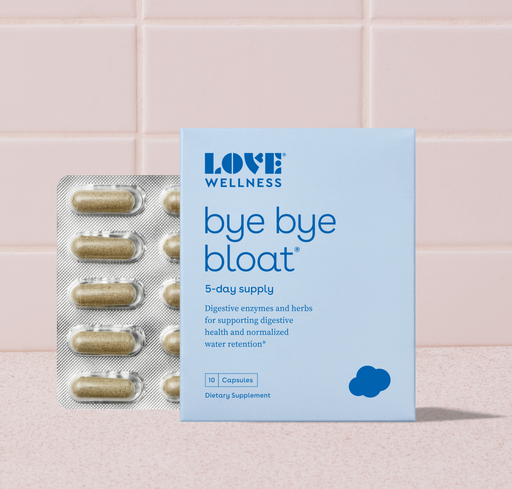 NEW!
NEW!Bye Bye Bloat® Travel Size
Alleviates bloating fast*
$8.99 One-time PurchaseA blend of digestive enzymes and herbs that alleviates bloating fast.* - Gluten-Free & Dairy-Free - Take 1-2 capsules after a meal or before b...
View full details -
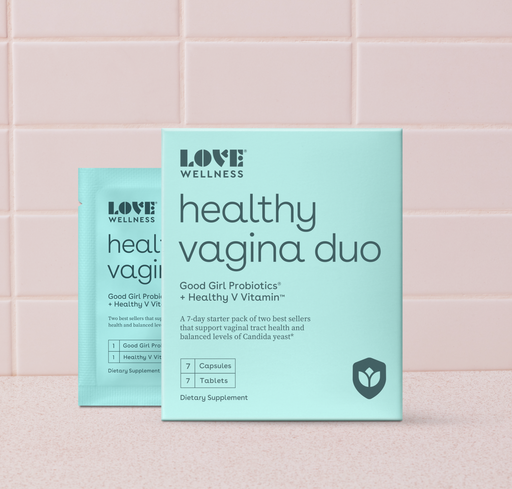 NEW!
NEW!Healthy Vagina Travel Kit
Supports vaginal & urinary tract health*
$16.99 One-time Purchase- 7-day supply — perfectly sized to take on the go so you can keep your routine up when you’re not at home! - Good Girl Probiotics®: Helps to maint...
View full details -
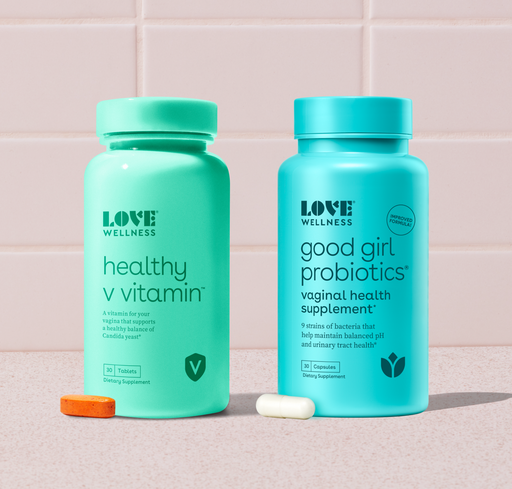

Healthy Vagina Bundle
Supports vaginal & urinary tract health*
$35.24 Subscribe & Save$46.99 One-time PurchaseFor vaginal & urinary tract health. HOW IT WORKS Together, this powerful duo supports your vaginal health by balancing bacteria and yeast. Go...
View full details -
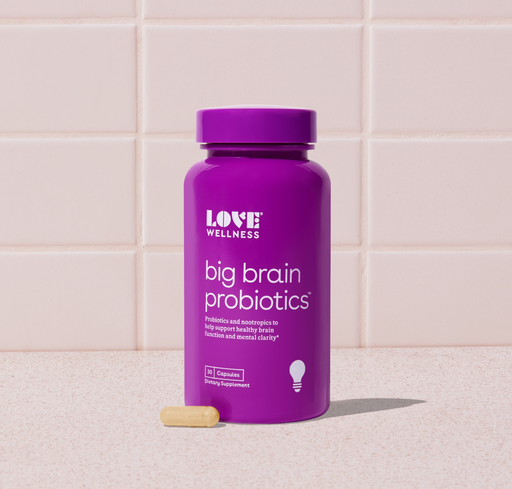
Big Brain Probiotics®
Helps support brain function*
$22.49 Subscribe & Save$29.99 One-time PurchaseA blend of probiotics and nootropics to help support brain function, cognitive health, and help maintain a healthy mood and sense of calm.* - Vegan...
View full details -
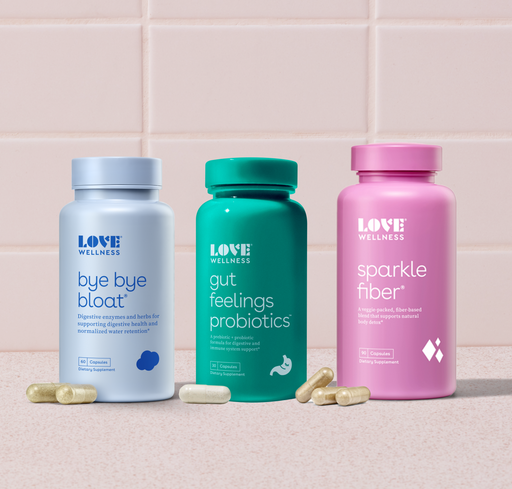

Bloating Bundle
Helps boost your gut health*
$54.74 Subscribe & Save$72.99 One-time PurchaseBeat bloat with this combo of fiber, digestive enzymes, and probiotics that naturally boost your gut health.* gut, bloating, gas, reflux, probiot...
View full details -
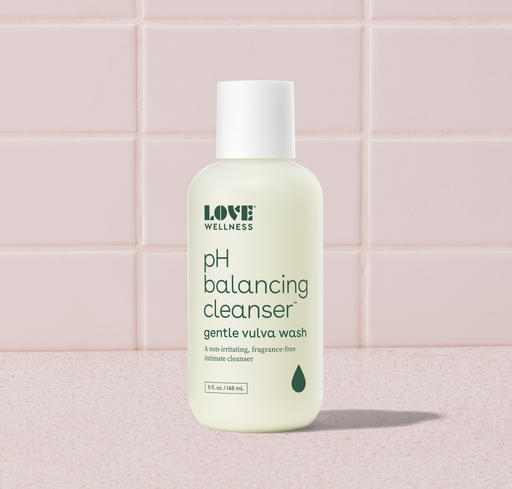
pH Balancing Cleanser™
Gently cleanses your vulva
$11.24 Subscribe & Save$14.99 One-time PurchaseA fragrance-free, gentle cleanser for your vulva to help maintain a balanced vaginal microbiome. - Gluten-Free, Dairy-Free, Vegan - Apply to wet s...
View full details -
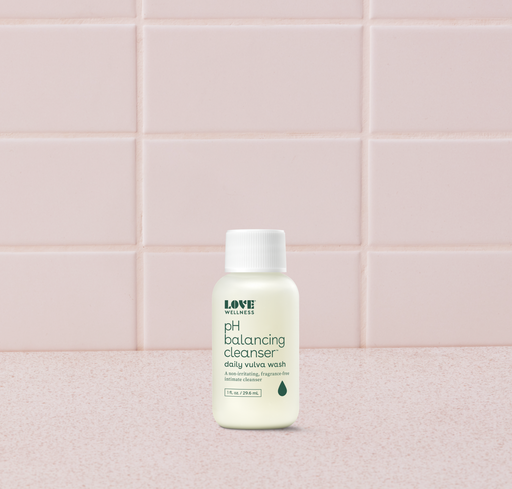 NEW!
NEW!pH Balancing Cleanser™ Travel Size
Gently cleanses your vulva
$4.99 One-time PurchaseA fragrance-free, gentle cleanser for your vulva to help maintain a balanced vaginal microbiome. - Gluten-Free, Dairy-Free, Vegan - Apply to wet s...
View full details -
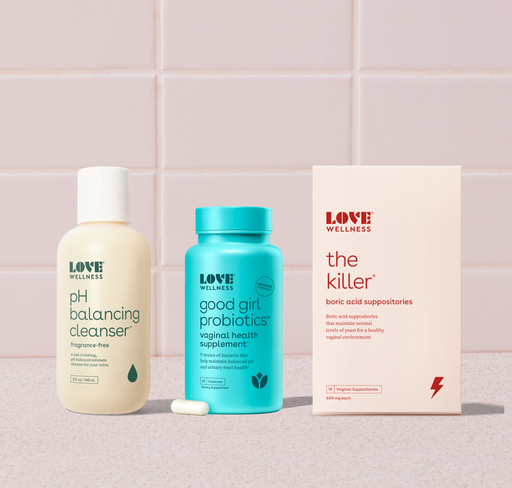

Vaginal pH Bundle
Three, must-have products to keep your pH balanced.
$40.49 Subscribe & Save$53.99 One-time PurchaseThree, must-have products to keep your pH balanced: a daily vaginal probiotic, a fast-acting suppository, and a fragrance-free vulva cleanser.*








